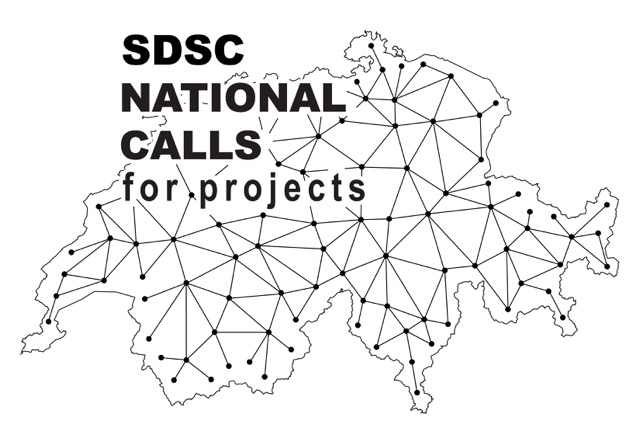
ICRC: Patterns of violence
Monitoring patterns of violence with data science

Abstract
The International Committee of the Red Cross (ICRC) is an independent and neutral organization operating worldwide to help people affected by conflicts and armed violence and to protect victims of war. Knowing whether an humanitarian action is effective requires feedback loops. The ICRC currently relies on observations, interviews and status reports compiled by field analysts to monitor its work. This has several shortcomings, like (i) subjectiveness, (ii) unstructured reports in the form of a text (making it difficult to extract information) and (iii) lack of human resources to monitor episodes of armed violence across entire countries.
People
Collaborators


Silvia holds an MSc in Computer Science from EPFL and a PhD in Computer Science from the University of York, UK. She has been a senior research fellow at the University of Trento and later at Politecnico di Milano, Italy. Here, she had the chance to work on Marie Curie and ERC projects relating to natural language processing. From 2012 to 2019, she was a Senior Manager and NLP expert at ELCA Informatique Switzerland, whose AI department she helped create and expand. Silvia joined the Swiss Data Science Center in 2019 and is currently its Chief Transformation Officer, in charge of the team leading organizations to digital transformation.


Roberto holds an M.Sc. and a Ph.D. in Particle Physics from the University of Torino, Italy. He has worked for several years in fundamental research as a senior fellow and data scientist at the CERN Experimental Physics division and on a research project supported by the Belgian National Fund for Scientific Research (FNRS). In 2018 he moved to EPFL to work on data mining and Machine Learning techniques for the built environment and renewable energies. He has started and led multiple collaborations with academic and industry partners in the energy domain. Roberto joined the SDSC in September 2021 as a Principal Data Scientist with the mission of accompanying industries, NGOs and international organizations through their data science journey.


Clément became part of the SDSC team in January 2019, assuming the role of a Data Scientist with an emphasis on industry-oriented projects. He holds a Bachelor of Science degree in Physics, acquired in 2016 from the École Polytechnique Fédérale de Lausanne (EPFL) in Switzerland. Following this, he earned a Master of Science in Computational Science and Engineering in 2018, also from EPFL. Throughout his academic journey, Clément concentrated on leveraging Data Science and Machine Learning techniques to enhance efficiency in industrial processes. Subsequently, he developed a specialized interest in Generative AI, with a particular focus on Natural Language Processing (NLP), especially in the application of Large Language Models for innovation.
PI | Partners:
ICRC
Fiona Terry
David Wanstall
Fabien Dany
Chiara Debenedetti
Aminata Gueye
EPFL and IDIAP
Daniel Gatica-Perez
ETH Zurich
Niklas Stoehr
The project was funded by the ETH4DHumanitarian Action Challenge.
description
Objectives
To address these issues, we propose incorporating large amounts of data, quantitative measures of conflict intensity and automated, machine-based event analysis. We process many textual reports on conflicts to uncover patterns of violence in the affected areas. To achieve this, we designed an open-source machine learning approach that can transform unstructured textual events into specific forms of violence, essentially identifying "who-did-what-to-whom". This approach has proven to be both flexible and low resource, as we do not rely on large, labeled datasets.
Benefits
The results of the model’s classification are matched against the ICRC’s data on its protection work that aims to influence armed forces and groups to fight in accordance with international humanitarian law (IHL). This has allowed the ICRC to monitor the impact of its actions and facilitate more informed, data-driven decision-making in planning future actions.

Notes
The project was funded by the ETH4DHumanitarian Action Challenge and grew out of a collaboration with Daniel Gatica-Perez (EPFL and IDIAP) and Niklas Stoehr (ETH Zurich). We would like to thank the team at the ICRC, Fiona Terry, David Wanstall, Fabien Dany, Chiara Debenedetti and Aminata Gueye for feedback and discussions that motivated this project.
Presentation
Gallery
Cover image: courtesy to ICRC
Annexe
Additional resources
Bibliography
Publications
Related Pages
- Engineering Humanitarian Action | Monitoring Patterns of Violence
- International Committee of the Red Cross | Harnessing the potential of AI to uncover patterns of violence
- ACL Anthology | Rethinking the Event Coding Pipeline with Prompt Entailment
More projects
EKZ: Synthetic Load Profile Generation
OneDoc: Ask Doki
SFOE Energy Dashboard
News
Latest news


Data Science & AI Briefing Series for Executives
Data Science & AI Briefing Series for Executives


PAIRED-HYDRO | Increasing the Lifespan of Hydropower Turbines with Machine Learning
PAIRED-HYDRO | Increasing the Lifespan of Hydropower Turbines with Machine Learning


First National Calls: 50 selected projects to start in 2025
First National Calls: 50 selected projects to start in 2025
Contact us
Let’s talk Data Science
Do you need our services or expertise?
Contact us for your next Data Science project!




